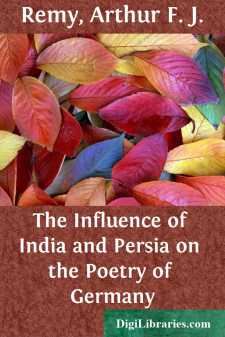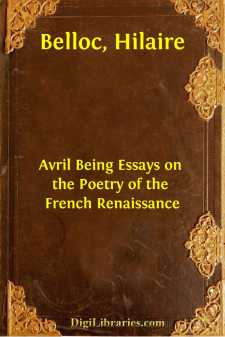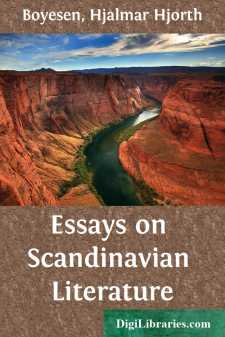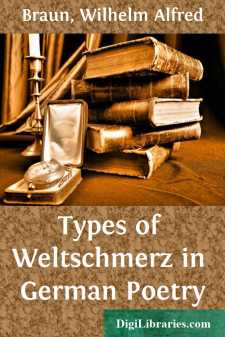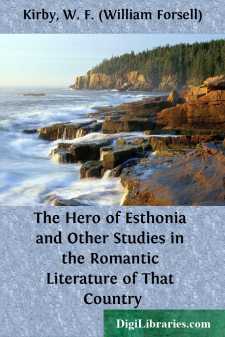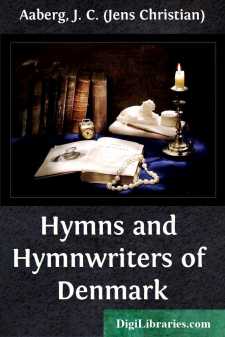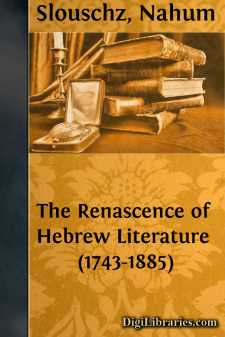Literary Criticism
- American 18
- Ancient and Classical 3
- Asian 1
- Australian & Oceanian 1
- Books & Reading 8
- Caribbean & Latin American 2
- Drama 2
- English, Irish, Scottish, Welsh 49
- European
- General 37
- Horror 1
- Humor 2
- Jewish 2
- Medieval 2
- Middle Eastern 3
- Poetry 7
- Renaissance 6
- Russian & Former Soviet Union 1
- Shakespeare 27
European Books
Sort by:
CHAPTER I. INTRODUCTION. Information of Mediæval Europe Concerning India and Persia—Travellers—India and Persia in Mediæval German Poetry. The knowledge which mediæval Europe had of India and Persia was mostly indirect, and, as might be expected, deficient both in correctness and extent, resting, as it did, on the statements of classical and patristic writers, on hearsay and on oral...
more...
by:
Hilaire Belloc
MY DEAR ECCLES, You will, I know, permit me to address you these essays which are more the product of your erudition than of my enthusiasm. With the motives of their appearance you are familiar. We have wondered together that a society so avid of experience and enlargement as is ours, should ignore the chief expression of its closest neighbour, its highest rival and its coheir in Europe: should ignore,...
more...
BJÖRNSTJERNE BJÖRNSON I Björnstjerne Björnson is the first Norwegian poet who can in any sense be called national. The national genius, with its limitations as well as its virtues, has found its living embodiment in him. Whenever he opens his mouth it is as if the nation itself were speaking. If he writes a little song, hardly a year elapses before its phrases have passed into the common speech of...
more...
CHAPTER I Introduction The purpose of the following study is to examine closely certain German authors of modern times, whose lives and writings exemplify in an unusually striking degree that peculiar phase of lyric feeling which has characterized German literature, often in a more or less epidemic form, since the days of "Werther," and to which, at an early period in the nineteenth century,...
more...
INTRODUCTION ESTHONIA Esthonia, or Estonia, as some prefer to write it, is the most northerly of the three so-called German or Baltic provinces of Russia—Esthonia, Livonia, and Courland. It is bounded on the north by the Gulf of Finland, which lies between that country and Esthonia; on the east by the Government of St. Petersburg; on the south by Livonia, and on the west by the Baltic. Opposite its...
more...
Early Danish Hymnody Danish hymnody, like that of other Protestant countries, is largely a child of the Reformation. The Northern peoples were from ancient times lovers of song. Much of their early history is preserved in poetry, and no one was more honored among them than the skjald who most skillfully presented their thoughts and deeds in song. Nor was this love of poetry lost with the transition...
more...
by:
Nahum Slouschz
INTRODUCTION It was long believed that Hebrew had no place among the modern languages as a literary vehicle. The circumstance that the Jews of Western countries had given up the use of their national language outside of the synagogue was not calculated to discredit the belief. The Hebrew, it was generally held, had once been alive, but now it belonged among the dead languages, in the same sense as the...
more...


